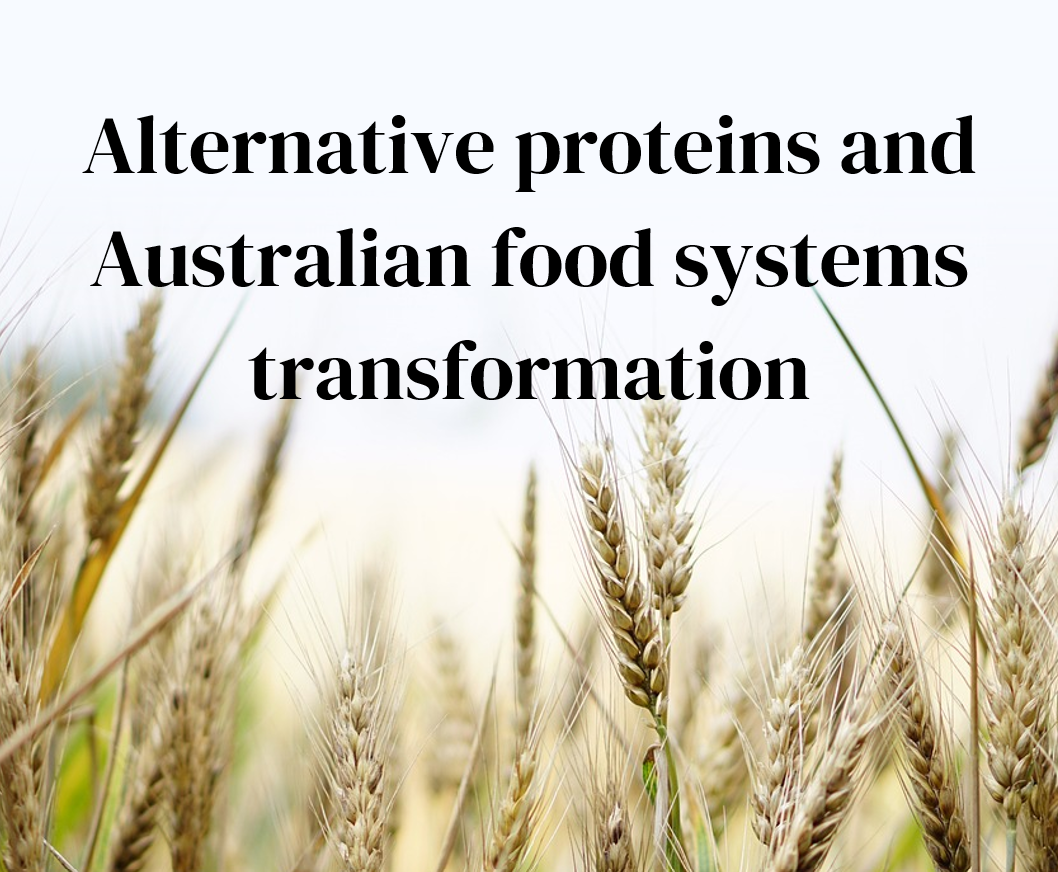Alternative proteins and Australian food systems transformation
Australia must transform its food systems if it is to achieve its climate change targets and remain a global food leader. Alternative protein industries are a critical part of any food systems transformation. In a report to governments, Food Frontier explains why transforming our systems of food production, consumption and distribution makes economical, public health and environmental sense, and how failing to act could result in Australia missing out on market opportunities and falling behind in the global arena.
The paper lists the following recommendations:
Federal government
1. As recommended by the Federal House Standing Committee on Agriculture in December 2023 following its Inquiry into Food Security in Australia, develop and execute a National Food Plan, overseen by a dedicated Food Minister and informed by a National Food Council made up of industry and community experts.
2. Develop and execute a dedicated strategy to grow domestic food innovation and value-adding industries (including the alternative protein sector) and develop mechanisms to promote innovation in food production as part of the Plan.
3. Establish a whole-of-government National Food Taskforce charged with coordinating departmental delivery of the Plan and work closely with state and territory governments to align jurisdictional priorities and action.
State and territory governments
1. All State and Territory Governments appoint a dedicated Food Minister (as already exists in Western Australia) with responsibility for the development and execution of jurisdictional food strategies aligned with the National Food Plan. Jurisdictional strategies should be designed in close consultation with local industry and community experts, with the purpose of supporting existing agrifood industries to become more sustainable and resilient and catalysing the growth of innovative food industries, including alternative proteins, as a priority.
2. All State and Territory Governments similarly establish whole-of-government taskforces to ensure coordinated delivery across the responsible departments and agencies, and regular cooperation at the federal level.
All governments
1. Demonstrate support for alternative proteins through thought leadership and proactive sectoral engagement to foster positive sentiment for protein diversification and to engender investor and consumer confidence.
2. Co-invest with industry in enabling, scale-up infrastructure, including into onshore plant protein ingredient processing capacity and contract / co-access manufacturing facilities that can be leveraged by the sector to provide domestic value-addition, economic and employment benefits.
3. Proactively build Australia’s alternative proteins skilled workforce through subsidised studies, industry placements and targeted, skilled migration programs.
4. Pursue health strategies that encourage the adoption of plant-centric and sustainable diets and utilise government procurement to incorporate plant protein in institutional settings, such as in aged care, to address diet-related health concerns.
5. Generate investor attraction reports detailing the domestic and export opportunities for new protein industries through detailed market analysis.
Subscribe to our newsletter
Each month we bring you the latest news from down under and around the globe, along with updates from Food Frontier, industry job opportunities and more.

